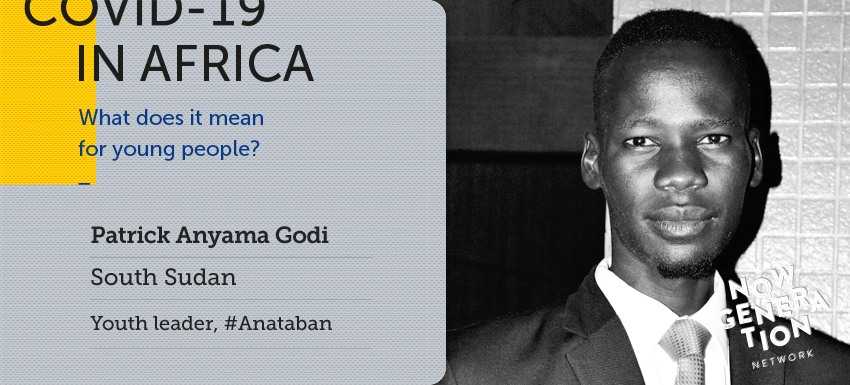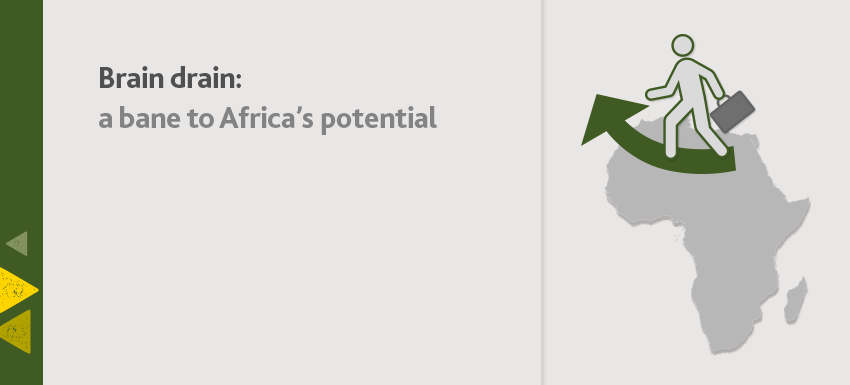The health, economic and social effects of COVID-19 in Africa and around the world have been unprecedented. In this series, young Africans both on the continent and in the diaspora share their views on the impact of the COVID-19 pandemic.
The opinions expressed in this article are solely those of the author, and do not necessarily reflect the opinions or views of the Mo Ibrahim Foundation.
Impact of the COVID-19 pandemic on remittance inflows to Africa
In the next few paragraphs, I analyse the economic impact of the COVID-19 pandemic on total remittance inflow on the continent.
Globally the impact of COVID-19 has created disruptions in social, economic, and even political activities. Across Africa, the story has not been different. Currently, the continent has recorded over 350,000 cases with over 9000 deaths and more than 180 000 recoveries.
As seen across the world, containing the spread of the pandemic appears to be the biggest challenge for many countries. Key measures to slow the spread of the virus in Africa include imposition of total lockdowns, closure of borders and entry points, curfews, and ban on social gatherings.
Currently, almost all countries on the continent have some form of mitigation measure in force. However, the containment measures have proven to be particularly dire for three key reason. Firstly, the informal nature of most African economies has made it particularly difficult to sustain lockdown or shutdown of the economy. Several countries have eased such restrictions although cases continue to rise due to agitations of seemingly unbearable economic impact of such measure. Ghana’s Finance Minister, Ken Ofori-Atta observed that “Given that 90% of our population is informal and they go out each day to earn wages, it became increasingly impossible to continue with such a policy”. Secondly, several countries on the continent lack robust data which has proven to be a challenge as it is difficult to plan without data. Thirdly, COVID-19 has exposed the weak economic fundamentals of several countries. While the economic impact of this pandemic has been felt across many countries globally, the lack of reserve for some countries in Africa has proven to be a challenge. Currently, more than half of the countries on the continent have accessed a total emergency credit of US$9,977.76 million from the IMF.
Impact of COVID-19 on remittance
Remittances have become a significant source of foreign exchange and income for countries in sub-Sahara Africa. Currently, remittance form about 31% of GDP in South Sudan, and about 20.1% of GDP in Lesotho. Until the emergence of COVID-19, total remittance inflows into the continent has been on the rise. For instance, in 2017, remittances reached $38 billion in Africa. In 2019, total remittances to the continent amounted to $48 billion. However, with COVID-19 severely impacting both the source countries of remittances UK, France, Germany, United States, Canada, among others and the recipient countries, remittances are expected to drop significantly especially as majority of the African migrants reside in these countries.
The World Bank estimates COVID-19 to adversely affect total remittances to Africa with a projected reduction of remittances by 23.1% to reach $37 billion in 2020. Remittances have particularly become an important source of foreign exchange revenue and also serve as means of income support for vulnerable families with relations in the diaspora. Also, investments emanating from remittances also serve as a source of employment for many on the continent. Based on the world projections, decline in remittance is expected to worsen the already exacerbated economic challenges and increase levels of poverty on the continent.
Tackling the pandemic: a more coordinated global response
With no approved vaccines for COVID-19, the economic impact could linger for years to come. Already, Ghana’s finance minister has warned that it could take two to three years for the economy of Ghana to fully recover from the negative impacts of COVID-19. It is increasingly apparent that African countries must learn to cautiously live with the virus while implementing measures to bring the economy at least to an optimal capacity.
Within the short term, emergency credit facilities such as those by the IMF appear to be the most realistic solution to ease the economic burden. However, Africa needs the “developed” world now more than ever. Although the impact is felt in both developed and developing countries, the resilience and comparatively large fiscal reserves accumulated by developed countries means they are more likely to withstand the economic shocks and stand a far greater chance of bouncing back than other countries. Therefore, the developed world could help Africa in two ways during this pandemic. Firstly, existing loans owed by Africa countries could be completely written off, or at least pause the payment of interest on such facilities for the next decade. Secondly, financial assistance could be provided to assist the smooth recovery of African economies.
In the long term, African economies must not only adjust to withstand unpredicted global shocks, but countries must also build up their fiscal reserves to be able to respond to unforeseen challenges. Investing in collection of robust data, expanding and building health infrastructure as well training more health professionals are other key issues that must be considered in the years to come. One thing is certain, the continent shall never be the same again after this pandemic. However, the course of direction for the continent will largely be determined by how the leaders of various countries respond.







